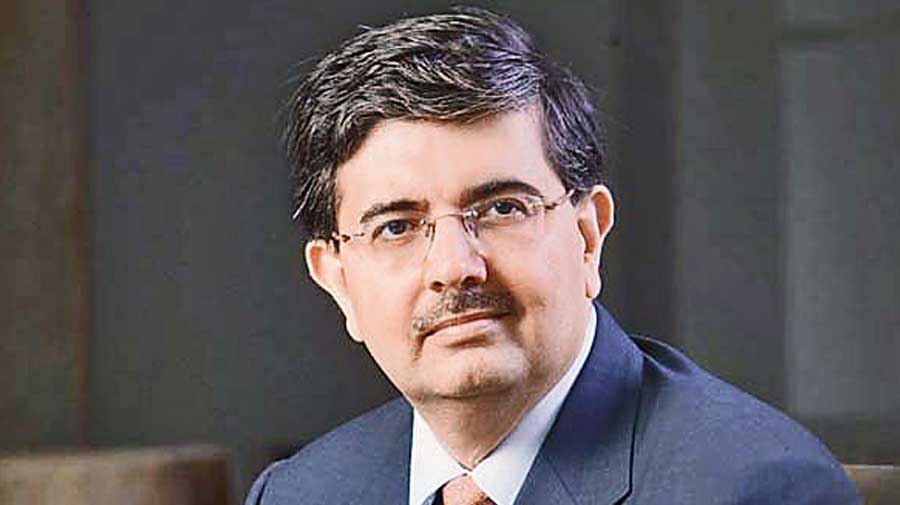Leading banker Uday Kotak has asked both the Reserve Bank of India (RBI) and the government of India to print more money to help the country tide over the debilitating effects of the pandemic.
Kotak, who is the CEO of Kotak Mahindra Bank, made these comments in an interview with NDTV. He suggested that the Centre spend up to 1 per cent of the country’s GDP for direct cash transfer to the poor as such a move will strengthen consumption at the bottom of the pyramid.
“In my view, this is the time to expand the balance sheet of the government, duly supported by the RBI... for monetary expansion or printing of money. Time has come for us to be doing some of that... If not now, when?’’ he said in the interview.
His comments come at a time the second wave of the pandemic has led to job losses and hit people’s mobility as various states have announced lockdowns. This has led to economists lowering their growth estimate for the Indian economy in this year. The RBI expects the real GDP growth to come at 10.5 per cent in this fiscal.
The central bank had announced a slew of measures on May 6 to help the economy among which was a G-Sec Acquisition Programme or G-SAP 1.0 wherein it will purchase Rs 1 trillion of government securities every quarter. It has already purchased bonds worth Rs 60,000 crore in two tranches since then.
Therefore, if the RBI were to accept his suggestion, it may choose to widen the size of the bond purchase programme. This comes amid speculation that the Centre may expand its first half borrowing programme, which is currently at Rs 7.24 lakh crore.
According to the RBI annual report of 2020-21, it undertook several conventional and unconventional measures during the year to ensure ample system-level liquidity as well as targeted liquidity to support vulnerable sectors, institutions and financial instruments.
As a result, interest rates eased across the spectrum, and conducive financial conditions prevailed. The central bank added that this enabled the orderly completion of the enhanced government borrowing programme at a 17-year low weighted average cost of borrowing. Of late, the central bank has also been successful in keeping a lid on G-Sec yields with the benchmark 10 year security trading currently at 5.98 per cent.
While Kotak did not dwelve on whether his suggestion would be inflationary, the RBI continues to be cautious in this regard. Its annual report said that the inflation trajectory is likely to be subject to both upside and downside pressures. The RBI has forecast that CPI inflation is expected to average 5 per cent during 2021-22.










